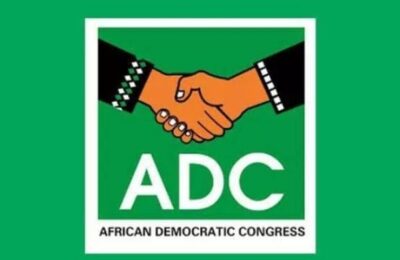The signs of economic illness rarely announce themselves in boardrooms; they reveal themselves first in the market stalls, in the trembling voice of a trader pricing her goods, and in the hollow laughter of men pretending all is well. When Manihot esculenta—the cassava root that births garri, Nigeria’s most democratic meal—begins to feel like caviar, then even the blind can sense that the nation’s economy is feverish. What lipstick and cardboard boxes signify to the American economy, garri and fuel queues reveal in Nigeria’s fiscal soul.
The air of unease now coursing through Nigerian streets does not need graphs or government bulletins to be understood. It is audible in the way market women sigh before calling their prices, in the careful arithmetic of civil servants rationing rice, and in the new silence that greets payday because salaries now dissolve before the second week. The poor man’s meal has become the economist’s metaphor. Once an emblem of resilience, garri has now graduated into a symbol of regression.
From Lagos to Lokoja, the cost of living ascends like smoke without a ceiling. The affordability of food—once Nigeria’s last comfort—has evaporated into abstraction. Garri, that granular white solace of the common man, has turned gold. When a basin of it competes with imported rice, the story is no longer about inflation; it is about the erosion of the national soul. The nation is dining on anxiety.
Across continents, economists often invoke “indicators” as their diagnostic tools: America has its lipstick index and its cardboard box barometers; Nigeria has her own—louder, more visible, and deeply human. You know the nation is slipping when yam becomes a monthly luxury, when bread shortens in size but lengthens in price, when mothers murmur prayers before entering the market, and when a bowl of rice is measured with the reverence of gold dust.
The Nigerian economy has developed its own grammar of pain. Silence in the markets has become an index of shrinking demand. Cardboard boxes that once symbolized booming trade now sit unused, while warehouses breathe the stillness of unsold goods. The wheels of commerce turn slower, and traders whisper of a mysterious “dollar spirit” haunting the cost of everything. Even the e-commerce rider, once the symbol of modern convenience, now parks his bike more often, lamenting that “orders don finish.”
The people have adapted to survival through invention. When Americans rediscover Hamburger Helper in their struggle, Nigerians return to “swallow without meat.” Fried rice becomes a seasonal ritual; indomie and boiled yam become the refuge of dignity. The aesthetics of poverty are now refined into a lifestyle—what used to be embarrassment has become endurance. A society that once measured success by portion size now measures it by the frequency of eating.
Even the middle class, once cushioned by illusion, has joined the pilgrimage to the thrift markets. “Okrika” has risen from derision to desire. Professionals now scout Yaba and Wuse as if they were Milan boutiques. The language has changed too; what was once called “used” is now called “vintage.” The human instinct to preserve dignity has rebranded necessity as taste.
The nation’s job market is equally gasping. The era of job-hopping—once the rhythm of ambition—is now a distant echo. People cling to their current employments as one clings to a branch in a flood. Each resignation letter now feels like suicide; each interview, an act of faith. The graduate hawking perfumes at traffic lights no longer shocks anyone; he is simply the new face of employment. The Japa dream, that seductive promise of escape, now trembles as other economies tighten their borders. The world, it seems, is running out of exits.
And in construction, where once we saw cranes as the architecture of progress, we now see silence. Half-built homes lie like metaphors of unfinished hope. Cement prices have outgrown salaries; building dreams now require the faith of Abraham. Instead of declaring, “I am building a house,” the new confession is “I am patching the one I have.”_
But even in this darkness, the Nigerian spirit, stubbornly incandescent, refuses extinction. It is the same spirit that turns scarcity into song and frustration into proverb. As the Igala saying goes, “When the yam refuses to cook, it is not the firewood that has sinned.” The people understand that government failures do not exempt them from feeding their children. So they innovate—some through farming, some through small trade, others through prayer.
The deeper tragedy, however, is psychological. The national mood, like America’s consumer sentiment, has fallen into fatigue. Hope has become a discipline, not an emotion. Citizens now navigate each day as a moral exam in endurance. The economist may call it “contraction,” but the poet knows it as hunger.
The real measure of a nation’s economy is not its GDP but the dignity of its daily bread. When garri becomes an investment and beans becomes a treasure, then numbers lose their meaning. The statistics might say “growth,” but the stomach says otherwise.
America may watch its lipstick and cardboard boxes; Nigeria watches her garri and fuel lines. Yet both nations share a truth—that before a recession becomes official, it first becomes personal. It begins in the kitchen, in the market, in the fearful budgeting of families that once lived freely.
As I listen to the murmur of this season, I remember the words of the late Professor Chinua Achebe, who said, “When suffering knocks at your door and you say there is no seat for him, he tells you not to worry, because he has brought his own stool.” That stool is now firmly planted in the middle of Nigeria’s dining table.
But amid the hardship, there is still the haunting refrain of resilience: “We go survive.” It is not bravado; it is theology. Nigerians have turned endurance into art, and patience into protest. The nation may be coughing, but her people—scarred, spiritual, and unbroken—are still breathing. And sometimes, that is the greatest economic miracle of all.
– Inah Boniface Ocholi writes from Ayah – Igalamela/Odolu LGA, Kogi state.
08152094428 (SMS Only)




